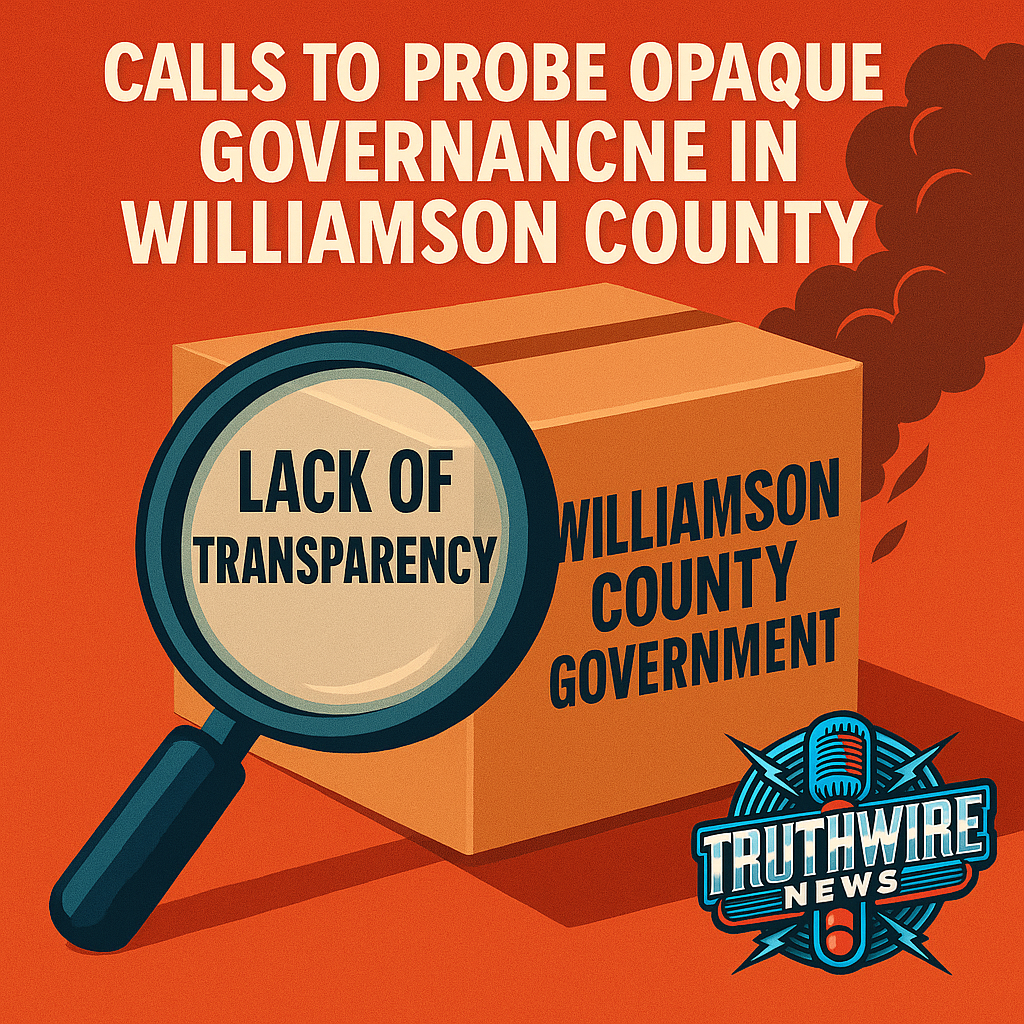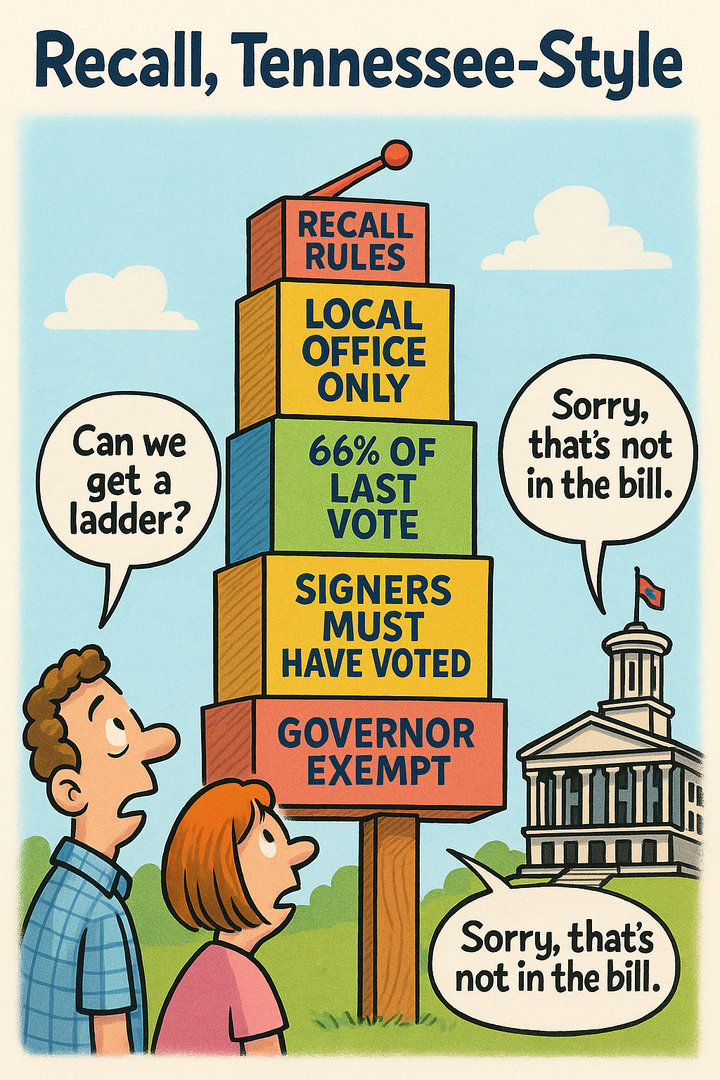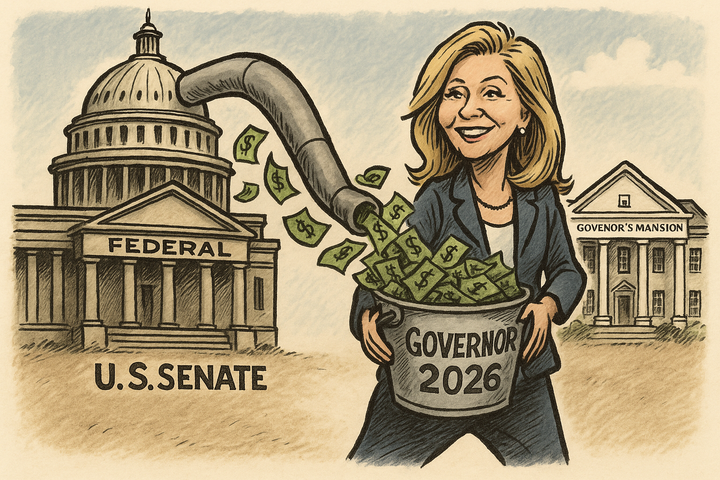Williamson County Commissioner Christopher Richards has formally asked the Tennessee Comptroller to investigate troubling procedural and fiscal practices by county leadership—alleging misuse of public funds, bypassing commission rules, and executive overreach.
By TruthWire News | May 2025
Williamson County Commissioner Christopher Richards has taken a bold step toward exposing what he calls a “pattern of serious procedural breakdowns and potentially improper administrative conduct” inside county government. In a formal letter sent May 3 to Tennessee Comptroller Jason Mumpower, Richards outlines a series of irregularities that he argues have compromised the integrity of the legislative process, blurred the separation of powers, and may have even resulted in the misuse of public funds.
The letter, addressed to the Office of the Comptroller of the Treasury, offers a detailed and deeply troubling account of how the county’s legal counsel and Mayor’s Office have allegedly undermined the authority of the elected County Commission. Richards is now asking the state to step in.
A Broken Process—and a Side-Stepped Commission
At the heart of Richards’ complaint is the reintroduction of a resolution—1-25-12—that had already been properly filed and deferred by a vote of the full Commission in January. According to Richards, the resolution was later taken up again in the Budget Committee without any formal referral by the full Commission, without public notice, and without informing him, the original sponsor.
This, Richards asserts, not only defies the county’s own rules but shows deliberate circumvention of legislative procedure. When questioned, legal counsel allegedly offered a procedural technicality—claiming that the committee had the right to hear the resolution since it “fell within its cognizance.” This circular justification, Richards argues, ignores the fact that only the full Commission has the authority to reassign deferred items.
“Legal Counsel as a Political Tool”
But this isn't just about one resolution. Richards paints a much larger picture: one in which legal counsel is selectively used to obstruct certain Commissioners—particularly those whose initiatives conflict with the political interests of the Mayor’s Office.
In a particularly alarming example, Richards describes discovering that the county had continued paying the Williamson County Chamber of Commerce despite the fact that its contract with the county had expired nine months earlier. When he brought this to the attention of the Mayor and legal team, he was told that budget approval alone justified the ongoing payments. Later, legal counsel claimed that a newly adopted contract could retroactively legitimize the prior expenditures—a maneuver Richards calls “highly irregular.”
Executive Control Masquerading as Legislation
Even more problematic is what Richards describes as a growing trend: the Mayor’s Office and unelected department heads initiating legislation without any sponsoring Commissioner. According to Richards, these executive-originated resolutions are quietly drafted by the legal team, funneled into the committee system, and assigned “sponsors” after the fact—typically committee chairs who had no hand in writing the proposal.
The result is a legislative process devoid of accountability. Resolutions appear on Commission agendas without a clear sponsor or explanation of origin. In one instance, a resolution to purchase a local radio station—pushed by the Mayor’s Office—was supposedly sponsored by a committee chair who later denied any involvement. Another Commissioner claimed sponsorship on the floor, only to vote against it moments later.
“This arrangement not only undermines representative government,” Richards writes, “but also blurs the separation of powers, allowing the executive branch to insert legislation directly into the Commission’s process with no elected sponsor and no accountability.”
A Call for Oversight
Commissioner Richards is requesting that the Comptroller’s office launch a formal review into five areas:
1. The improper reintroduction of Resolution 1-25-12 without referral or notice;
2. Payments made on expired contracts and the legal maneuvering used to justify them;
3. The role and objectivity of the County’s legal counsel;
4. The executive’s initiation of legislation without elected sponsorship;
5. Recommendations to ensure compliance with state law and good governance.
Richards ends the letter with a call for transparency and an affirmation of his duty to the public.
A Larger Pattern of Control?
For many in Williamson County, this letter confirms long-standing suspicions that the County Commission is being weakened by executive overreach and administrative gamesmanship. When unelected department heads and political appointees can initiate legislation without any public accountability—and when legal counsel appears to function more as political shield than impartial advisor—basic checks and balances begin to erode.
It’s a troubling picture. And one that demands more than a legal memo in response.
TruthWire News will continue to follow this developing story. The Tennessee Comptroller’s response—if and when it comes—could be a major test of whether state-level institutions are prepared to intervene when local governance loses its way.
If you support what I do, please consider donating a gift in order to sustain free, independent, and TRULY CONSERVATIVE media that is focused on Middle Tennessee and BEYOND!
CLICK THE BUTTON OR SCAN THE QR CODE BELOW!!






Comments ()